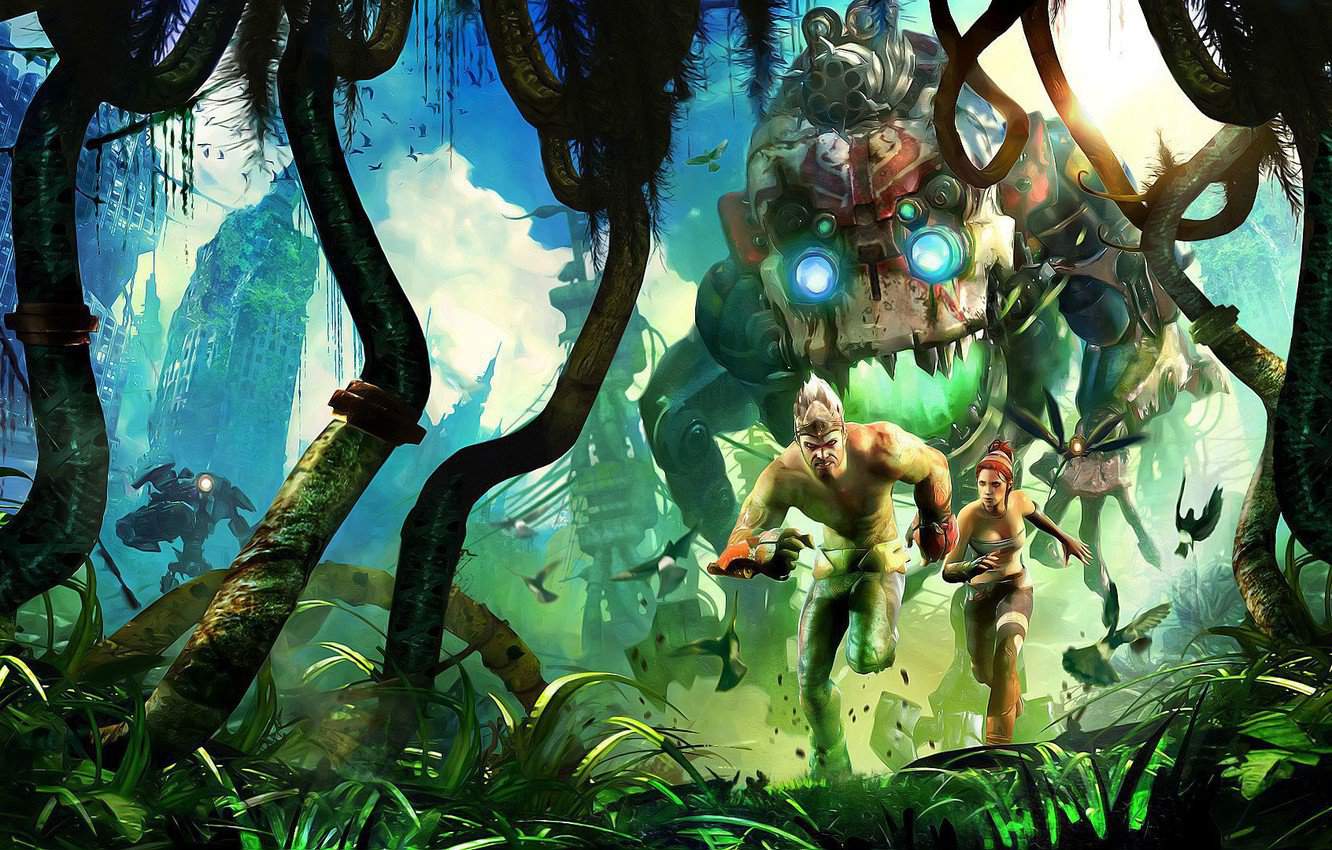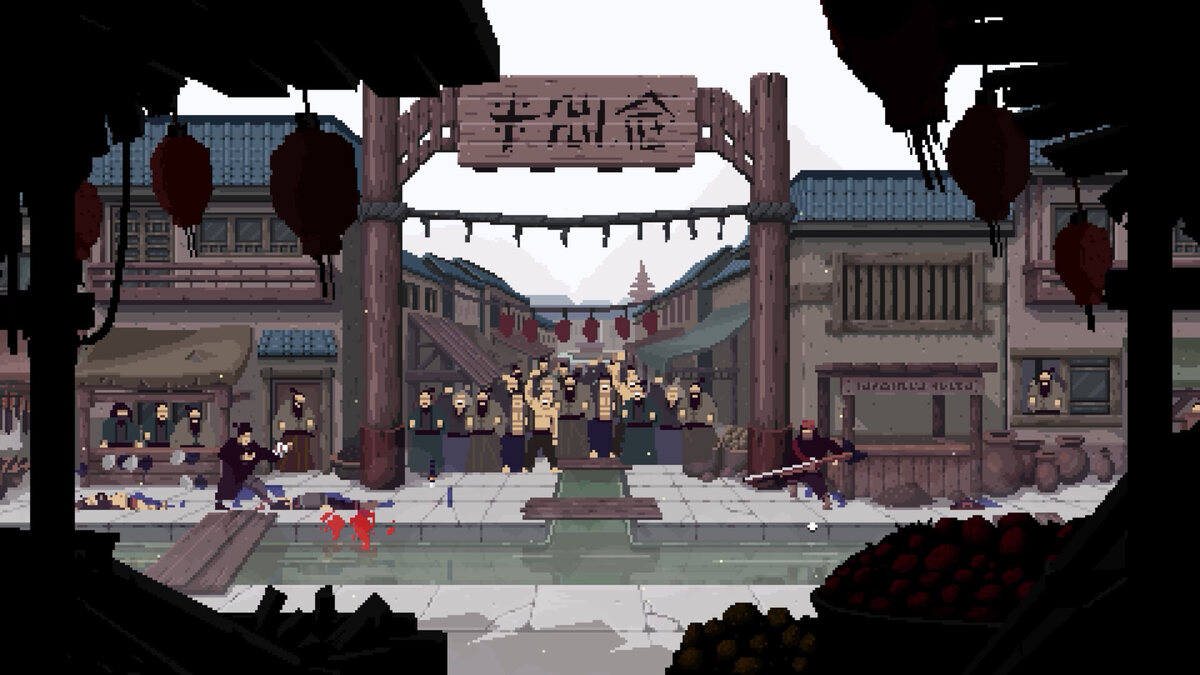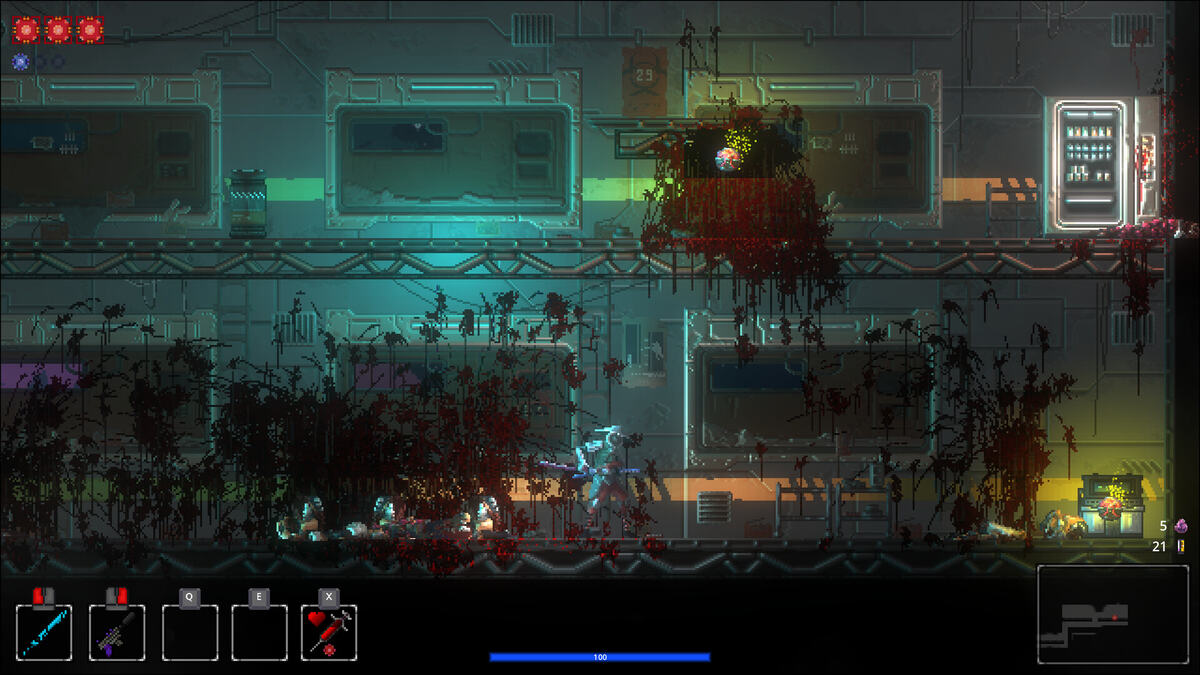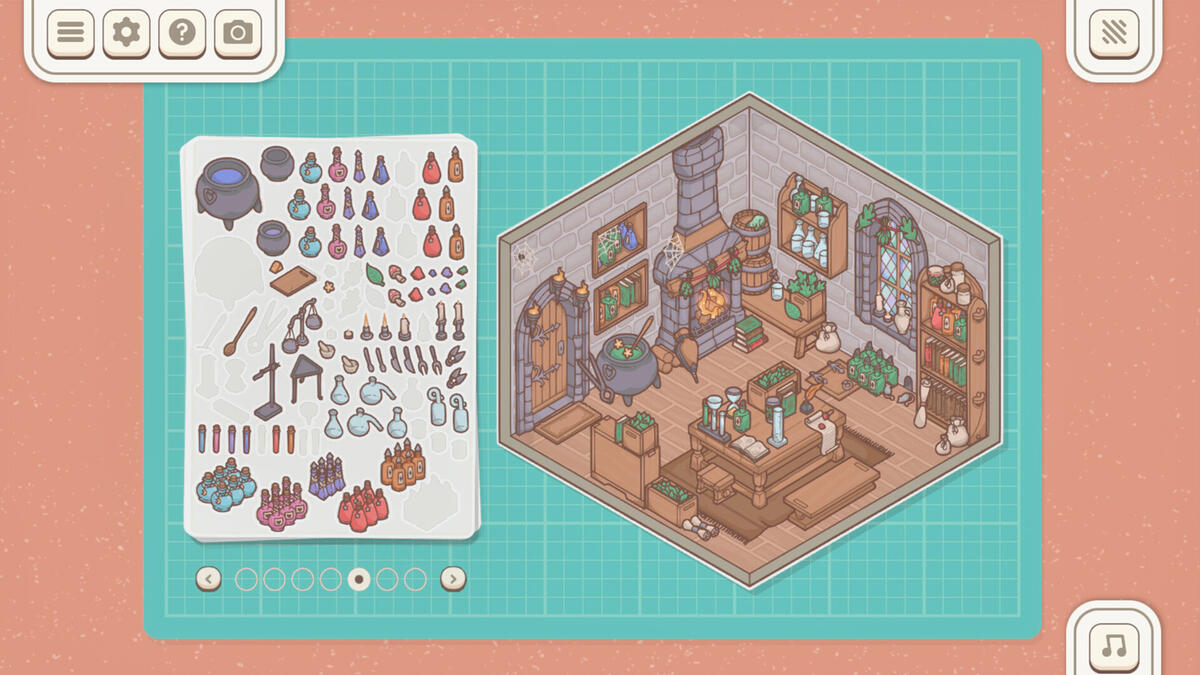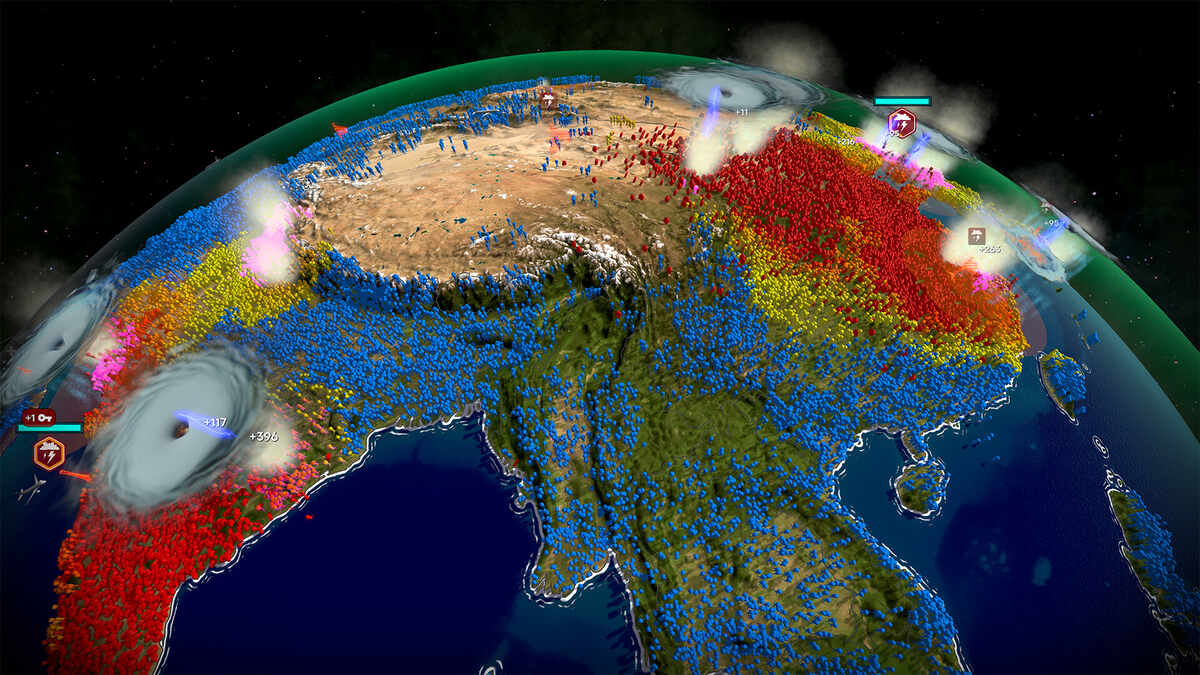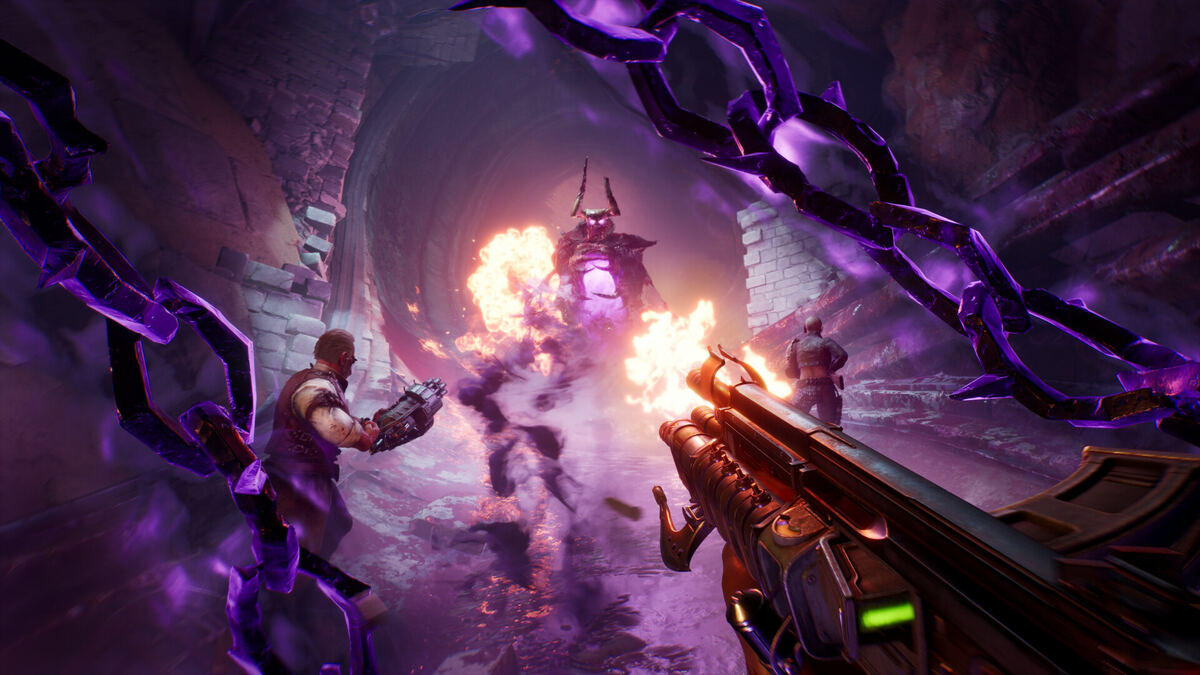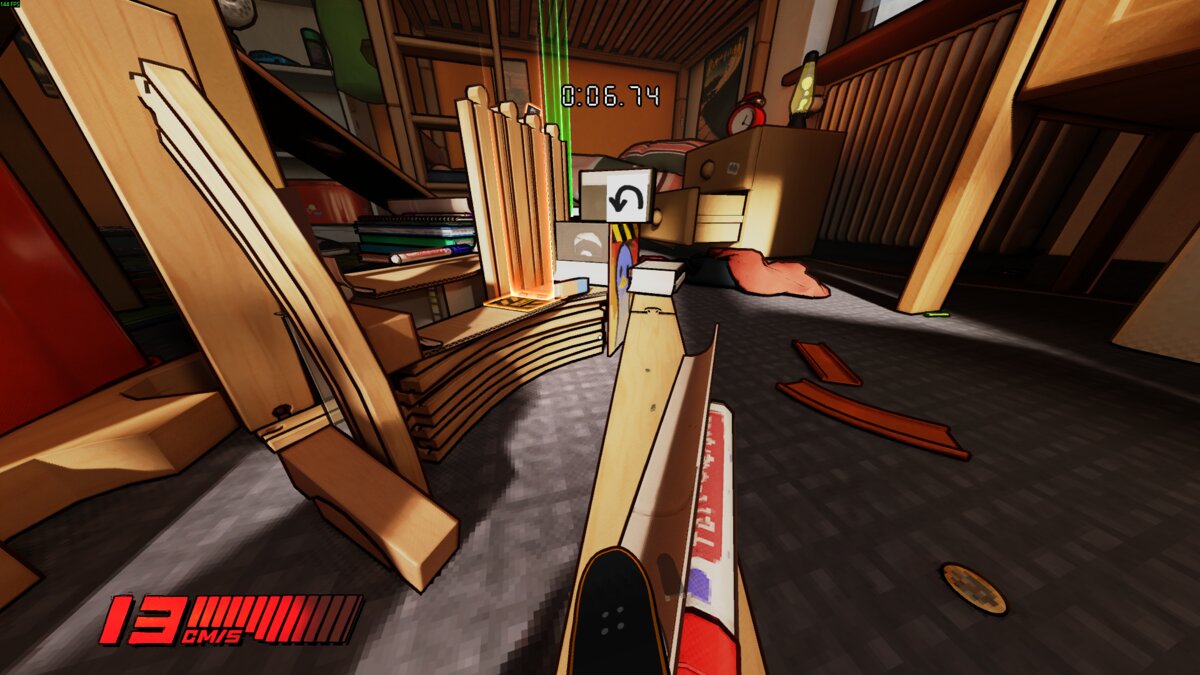You can trust VideoGamer. Our team of gaming experts spend hours testing and reviewing the latest games, to ensure you're reading the most comprehensive guide possible. Rest assured, all imagery and advice is unique and original. Check out how we test and review games here
Tameem Antoniades’ official title at Ninja Theory is co-founder and chief creative ninja. It’s even on his business cards. What that means, though, is that he’s the guy in charge of the creative vision, of the little details, and making sure Ninja Theory’s next game – Enslaved: Odyssey to the West – is able to cut the mustard. We sat down with him to find out about his inspiration, his view on UK games development and why he can’t stand Resident Evil 4’s Mercenaries mode.
Q: Do you think people are going to like Enslaved?
Tameem Antoniades: Yeah, I think so. We [Ninja Theory] have been going for 10 years now, making games, refining, and honing what we’re doing. Although I speak a lot about the storytelling and the talent, I do that because it does set the game apart. But the core of the game is the puzzles, the combat, the traversal and the mechanics. Compared to Heavenly Sword, I think we’ve just gone much, much deeper into the variety of just what makes a game fun for gamers. I think it’s a solid game. It’s the best game we’ve done by a long stretch.
Q: Are people going to be calling it a sleeper hit?
TA: I hope so. There’s so many good games coming out, and most of them are sequels, so to actually break through now is really tough. I think the only way you can break through is if people like it. They download the demo and they like it, and they get their mates to play it and it kind of spreads. Kind of like Batman [Arkham Asylum] did.
Q: Are you putting a demo together?
TA: Yes.
Q: It’s funny you mention Rocksteady as another prominent developer…
TA: We used to be mates with them. We were all part of Argonaut, and then Argonaut went bust, and they went off and founded Rocksteady and we founded Ninja Theory, so there’s a genetic link.
Q: Do you think it’s all a bit gloom and doom with British studios at the moment?
TA: I wish things were better. If we did have the tax breaks, it would just mean that we could push harder and get further ahead. The fact that we do these shoots, these five week shoots for the game, the cast and crew, the actors, the technicians – if they were working on a movie they’d get tax breaks. It’s cheaper to make a movie than a game! It’s a bit unfair. And the fact that this is one industry where Britain is so prominent, it’s a shame that we’re not pushing it further and going, ‘Yeah, let’s be number one.’ We’re kind of teetering. There’s a few developers that are coming up and going down, but not really knocking it out the park.
Q: Do you see Ninja Theory as an up and coming developer?
TA: I hope so. Every game we’ve done, we’ve done off the back of our previous game. We’re not getting massive investments or anything – we’re not getting any investments – we’re just building a game, and on the strength of that game building the next one. As long as each game is better than the last one, I think we can carry on and do things that are less derivative.
Q: Is there not a certain comfort in derivative stuff, though?
TA: I’ll tell you something – I’ve never really understood the obsession with having a single game mechanic that defines your game. With certain games there’s, like, gravity manipulation or time manipulation or rock manipulation. Or jetpacks! I think we’re past that. I think you do need good, solid game mechanics, but you do need to present them in a unique way. If you can execute it really well, I think that counts for a lot. I think about my favourite games – Half-Life, Resident Evil 4, Uncharted – and I don’t see a huge amount of innovation per se, I just see incredibly accomplished execution. I’m not ashamed to be in that category – take the mechanics that you know work, and add your own twist to it.
Q: So why aren’t more studios doing performance capturing?
TA: Do you know what? It’s just really technically difficult. We had the opportunity to work with Weta [Peter Jackson’s visual effects company] for a year, refining it. It’s one thing doing it in a movie, but doing it in real time is another matter. I think we’ve just got an incredible head start in that area. I’m actually shocked that nobody seems to have… I’m shocked it’s not spread as much as it should.
Q: You’re going to get two comparisons off the bat – Uncharted and ICO.
TA: I think there are similarities, like, just because they’re making a cinematic game and we’re making a cinematic game. ICO, the comparison is valid because that’s one of my favourite games. And Another World on the Amiga was one of my favourite games, and ICO was actually based on Another World. So, there are definite comparisons, but they’re comparisons that I’m uneasy with, because it sets an expectation. But those are some of my favourite games and I do want our game to be up there. And I think our game has enough differences: it’s got its own twist, it’s got its own characters, it’s melee-based, the story’s unique – there’s enough unique about this game that it’ll have its own identity. It’s not a knock-off.
Q: Was there ever any desire to hire Nolan North?
TA: No, not in the least bit.
Q: Do you think games have got easier over time?
TA: I think it’s true. Look at Pac-Man. I love Pac-Man. You can’t win, there’s no end in sight, but the challenge is fun. I think games used to be a bit more cerebral – in the kind of way that ICO is, actually, or the kind of way that Rick Danger was, or the Oddworld series. They made you think instead of run on pure adrenaline. I think that’s really attractive, as a gamer. We came into this [Enslaved] thinking that we wanted to make the game we want to play, and not the game that other people say is what we need to do to sell the game to other people. We tried that and it doesn’t really work – you’ve got to create it for yourself, and then hope it’s going to transfer to other gamers.
Q: Enslaved is the game you want to make, then?
TA: This is our concept. This is the game we want to make. Namco Bandai agreed to it, and they’ve given us support when we’ve needed it.
Q: Do you not think that making a game influenced by something like Another World or ICO is quite risky, though?
TA: What Another World did really well was establish this relationship with another character that was quite emotional at times, and what it also did well was tell a story visually because there was no dialogue – and it did that really well. And I think that actually it’s just taken time to figure out how to do that: they’ve done it in first person shooters like Half-Life, but not quite so much in adventure games. I’d say Uncharted 2 was the first real kind of eureka moment of actually achieving that cinematic quality in an adventure. I think we’re just behind them, really – we’re aiming for that same level of cinematic quality.
Q: You seem quite modest, and more than prepared to talk about games as a medium. Other developers seem to be reluctant to talk about this. Do you think the industry would be better if people were more open to discussion?
TA: I think so. On Kung Fu Chaos, Microsoft wanted a story in the game. I thought, “this is a four-player party game, what is the point of having a story?” Stories don’t belong in games. In Heavenly Sword I thought, “Actually, let’s try and do a story.” Working with Andy and everyone else, working with Weta and having people talk about story as something serious – not something throwaway like we do in games – was quite eye-opening to me.
I still see a prejudice, actually. I still come across a lot of people who say, “it’s a game and it doesn’t need a story.” You’re trying to make a particular point of storytelling, trying to refine it, and somebody says “it’s just a game, it doesn’t matter.” What’s more important – the gameplay or the story? If you’re doing a game, it’s got to be the story, actually. I’ll give you an example of where that’s true: Resident Evil 4. I played it from start to finish, I didn’t want to let go of the controller and I was driven through it. I just wanted to know what happened next. As soon as I completed it, you get those mini-missions, “kill x zombies in an amount of time.” So there’s no story, it’s stripped out of all that and it’s just shoot however many zombies in however much time. And you realise – have I been doing this for the last 10 hours? Because it didn’t feel like it, as I’m bored within about a minute of doing that.
So there is something, there is an importance. There is a symbiosis where, if you get it right, both story and gameplay can be elevated. But it’s really hard to know when you get it right or not.
Enslaved is scheduled for release October 8, 2010 on Xbox 360 and PS3.
Enslaved: Odyssey to the West
- Platform(s): PC, PlayStation 3, Xbox 360
- Genre(s): Action, Adventure
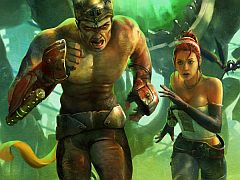
/https://oimg.videogamer.com/images/44be/enslaved_60.jpg)
